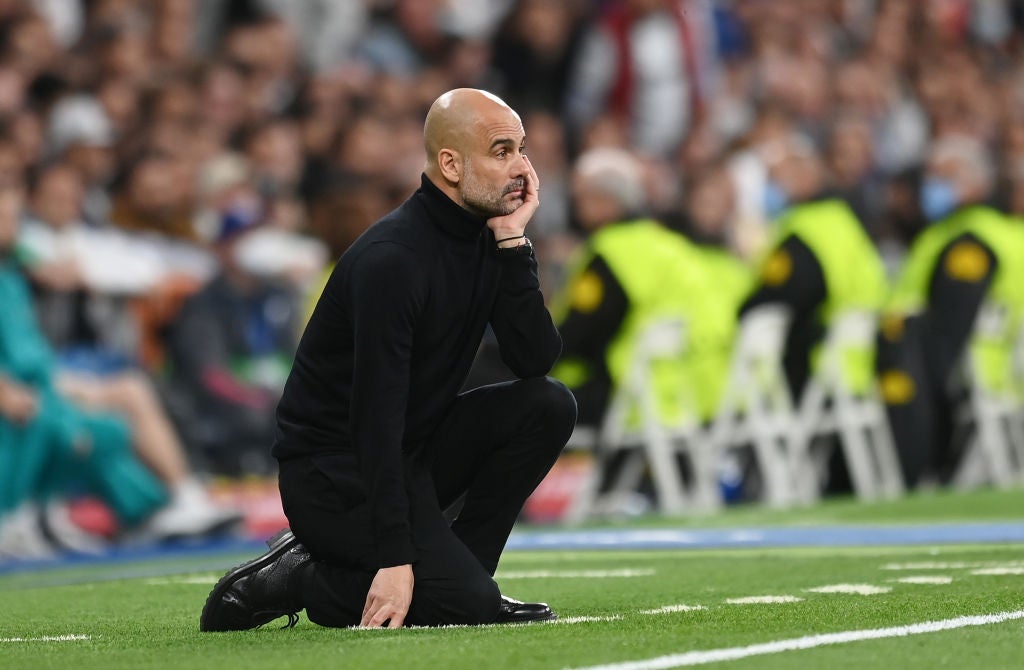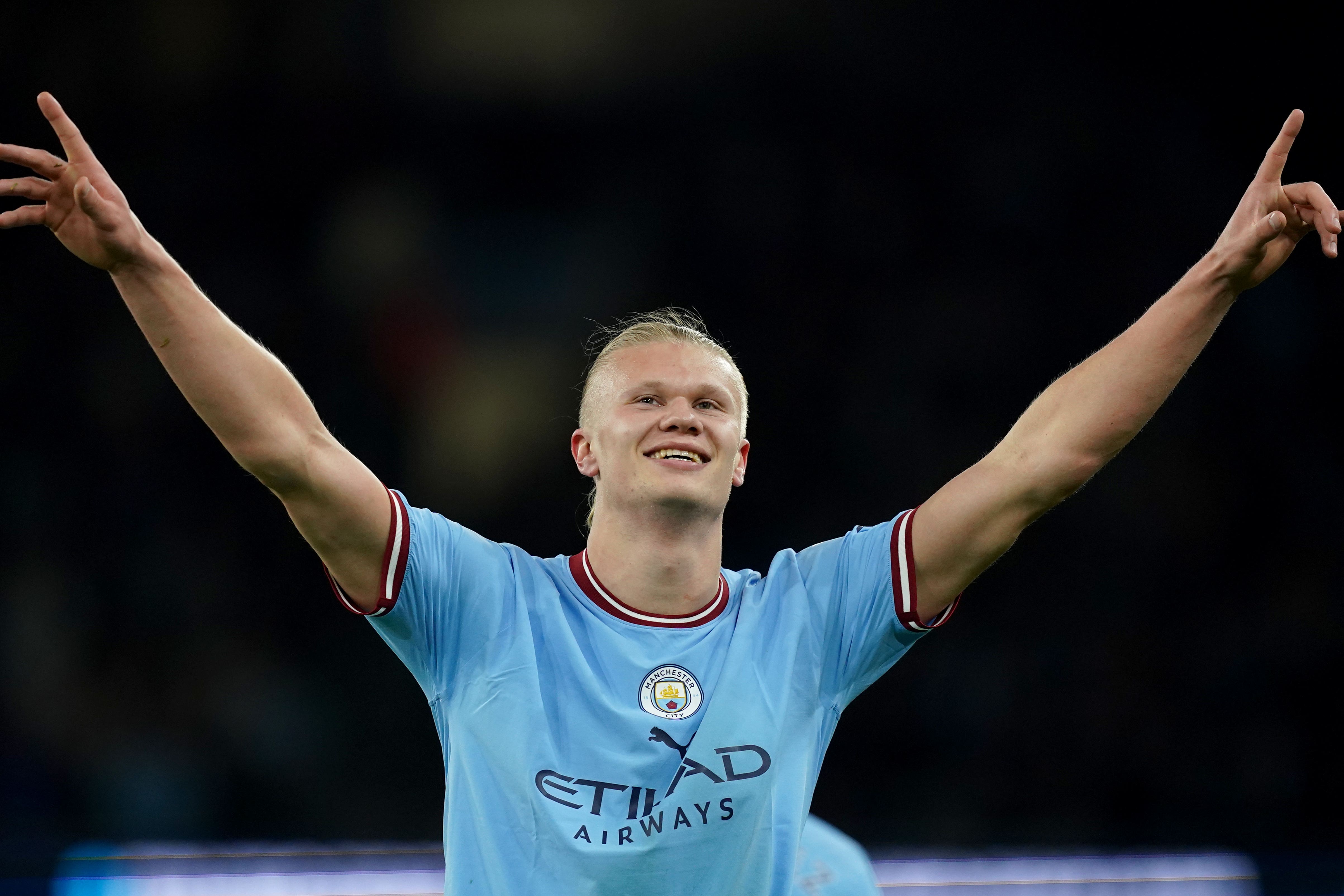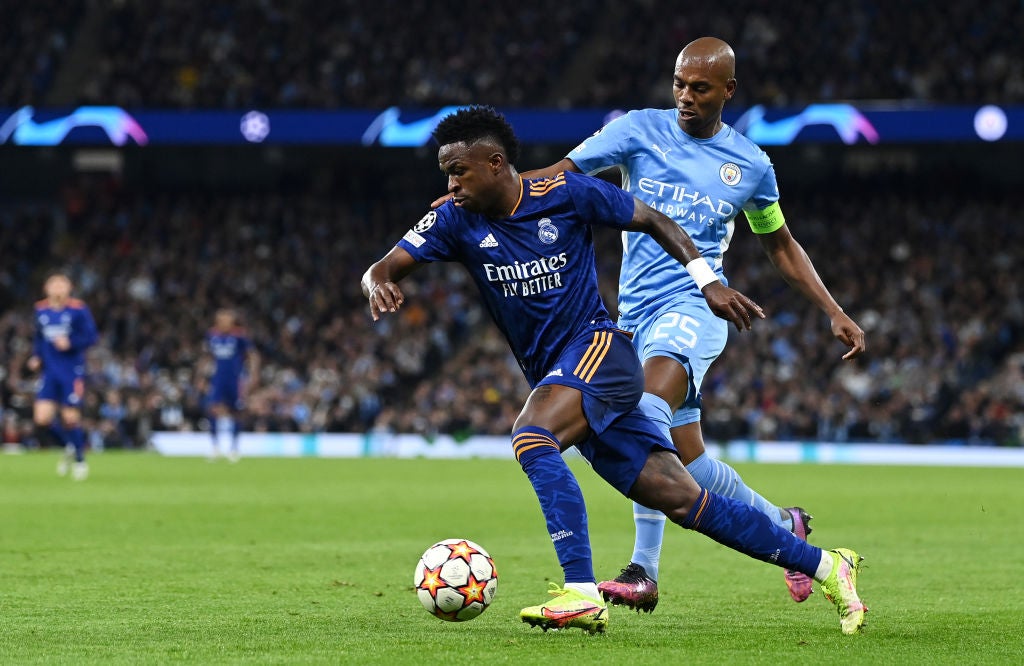
In the days before Manchester City’s most important match of the season, Pep Guardiola has been trying to strike a difficult balance. Surprisingly, his focus is not on how to play against Vinicius Junior, despite the way the forward scorched the Catalan’s side last season. Instead, Guardiola wants to make sure his players do not dwell on how last season’s semi-final ended, for fear of it inhibiting their performance, but he also doesn’t want to suppress their desire for revenge either.
With the Premier League champions in unprecedented form, some within the team want to subject Real Madrid to the heartbreak that City endured last May. Madrid, meanwhile, are intent on reasserting why they are the greatest. Carlo Ancelotti has been seeking to nurture their talent in that understated way of his.
It’s just about the only thing with this Champions League semi-final rematch that’s understated. All around the Bernabeu, there is the sense of the game building up to the be-all and end-all of the season. It is little wonder it is being described as the “real final”. After all, this is by far the more difficult side of the draw, with arguably the two best sides in Europe.
It has the high stakes that lend it the grandeur of previous “real finals”: Internazionale-Barcelona 2010, Barcelona-Bayern Munich 2015, Liverpool-Barcelona 2019 and perhaps Bayern Munich-Madrid 2001. It’s also what many think, and psychology is a key part of this.
Those within Madrid firmly believe City are the best team in Europe – other than them – and overtures are already being made to try and bring Erling Haaland to the Bernabeu at some point in the future. Some of the Real hierarchy have been left gobsmacked by Haaland. Ancelotti has been discussing with his staff how to limit the striker’s impact. But Haaland still doesn’t dominate their mindset as much as state-owned clubs like City influence the thinking of Florentino Perez. The driving force for the Madrid president in the last half-decade has been ensuring his club can compete with such political projects.
On the flip side, Madrid are the kind of grand football institution City feel they must overcome. To win the Champions League by beating three of the competition’s most historically successful clubs – Bayern Munich, Madrid and AC Milan – would be a highly symbolic moment. But there is still something deeper to the Spanish giants, though.
Madrid were Guardiola’s great rivals at Barcelona. They so often won the top European competition that eluded the Catalans, and are the club that subjected Guardiola to some of his worst evenings. What happened last season between City and Real Madrid was, for Guardiola, an extension of his history at the Camp Nou. In addition, there was the semi-final in 2014 when Cristiano Ronaldo and Gareth Bale eviscerated Pep’s Bayern.

All of this is firing up everyone involved.
And yet it is that very shared history which means we are long past the point where we can cast this as the football establishment against new money, a grand old institution against a modern state project. Both, after all, came together for the Super League project two years ago.
There’s a familiarity on a few levels. This is the third time City and Madrid have met in four seasons. Two have been in the semi-finals.
It’s what happens when the pool of teams at the continent’s top end shrinks, as both of these clubs have played their part in ensuring. It is another reason this is seen as “the real final”. This season has made it feel like the only potential champions are English sides, Bayern Munich, Paris Saint-Germain (at a stretch) and Madrid.
As these names have fallen, it has looked more and more like it will be City’s year. Such is their strength in depth that they are always in contention – this year, last year, next year – in a way rarely seen in football history. Haaland’s goals epitomise this.

They also point to how some new elements will decide a tie with increasingly familiar themes – or, at least, new spins on familiar themes. In seeking to maximise the force of Haaland, while marrying the player’s singular goalscoring brilliance with his own obsession with collective control, Guardiola has gone back to his roots. He has reconfigured Johan Cruyff’s “box” from Barcelona’s 1992 season, which also happened to be the first Champions League the club had ever won.
It has at once released Haaland while keeping him a key part of a coherent collective. That is going to be very hard for Madrid to undo in the way they managed last season, although Bayern showed one vulnerability is pace on the flanks that Ancelotti has in abundance. This is where Vinicius is so dangerous, and would require more compromises within Guardiola’s system. City may have to double up on the Brazilian. Vinicius has gone up another level after winning last season’s Champions League. Many within the game believe he is the most effective footballer in Europe right now.

Others, of course, believe it is Haaland. And Madrid certainly can’t afford to forget about him. It wasn’t like City struggled to create chances against Madrid last season, they just didn’t have anyone to finish them. It let Madrid back in, for the mother of all of those comebacks.
There is little surer than Haaland, though. There is little surer than the idea these are the two best teams in Europe right now.
It is why this is being cast as the true final. Since both are so much better than the Milan clubs, the showpiece will feel a fait accompli.
That is often the danger with such games, though. You forget what is to come, and put so much into the grand showdown before. This semi-final is after all built on countless recent memories, that could play a part in deciding it.







